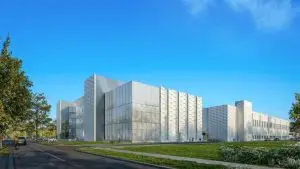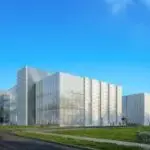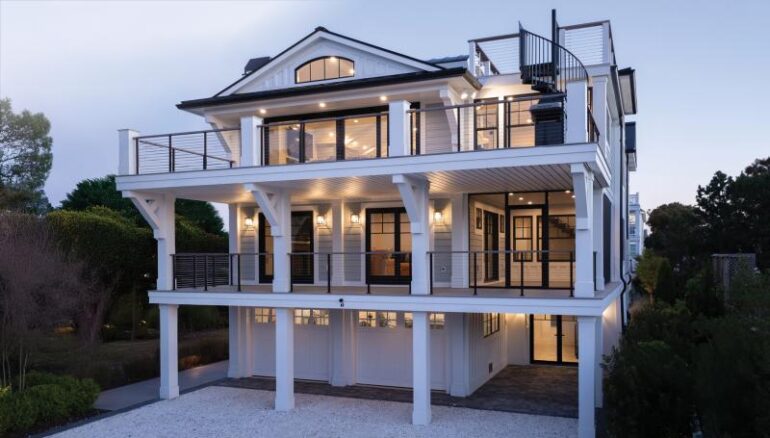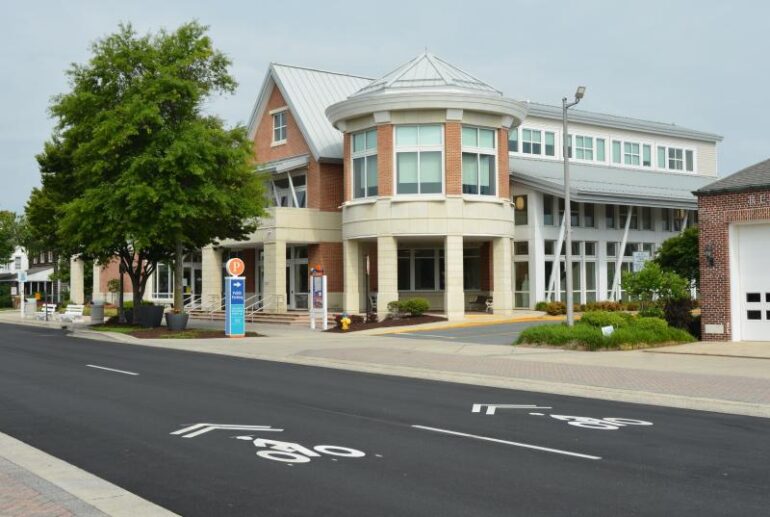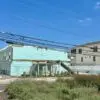-
 play_arrow
play_arrow
Radio Rehoboth

WILMINGTON — Merck & Company revealed that its $1 billion research and development lab at the Chestnut Run Innovation & Science Park (CRISP) will not only be the main production plant for Keytruda in the United States, but also the focal point for the next wave of its drug discovery.
The complex, named Merck Wilmington Biotech, will include three buildings with a collective 470,000 square-feet of lab and office space on the north side of the rising innovation business park, right next to the headquarters of Prelude Therapeutics. Merck plans to produce next-generation biologics, as well as antibody-drug conjugates which is a class of cancer therapies.
According to Merck Manufacturing Division President Sanat Chattopadhyay, the Merck Wilmington Biotech facility could have needed capacity must faster than before with the help of cutting-edge innovations in robotic systems, along with artificial intelligence driven data analytics to hasten the process of drug discoveries.
“We have the target of being able to launch innovative products from this site in six months. That’s a remarkable leap for our inner mission – to expedite access to our patients,” Chattopadhyay said during Tuesday’s groundbreaking ceremony. “This fundamentally follows the company mission and philosophy that we should create U.S. assets for a U.S. market.”

Keytruda, the blockbuster cancer treatment that generated $29.5 billion in sales last year, is primarily manufactured in Ireland with other contract locations in Asia and Europe. Merck officials confirmed that some of the Keytruda manufacturing at its West Point campus will be transitioned to Delaware, but it will not close that site.
The move will also substantially onshore pharmaceutical manufacturing for the global company amid accelerating trade tensions as President Donald Trump has launched an investigation into the pharmaceutical industry for potential new tariffs.
At the ceremony which was attended by a select group of Delaware dignitaries and business leaders, Merck officials touted its plans to invest $9 billion in the next four years in U.S. pharmaceutical manufacturing, including new expansion to a plant in North Carolina for vaccine production.
Here in Delaware, Merck plans for the lab component of its campus to be operational by 2028 with the rest of the facility to follow two years later. Merck plans to hire around 500 employees, but Merck Chairman and CEO Robert Davis hinted that was the “initial investment” and there was potential to reach 1,500 jobs in the future.
“Today we take a significant step forward with Merck Wilmington Biotech as the cornerstone of our promising future,” Davis told the crowd. “This new site will be a state-of-the-art center of excellence with advanced laboratories, manufacturing and warehouse capabilities that will develop the next generation of products.”
Merck officials told the Delaware Business Times that the three buildings at CRISP is the first phase and there will be ample time over the next three years to decide whether to expand further at the life sciences campus. Merck has already signed a 20-year lease with the MRA Group for the site, signaling the potential to add more production capability in the future.
Merck’s potential to grow at the 164-acre campus may mean that Delaware could see a buzz of activity in that location not seen since DuPont closed test labs on Route 141. In the 1980s, there could have been around 3,000 people working on the Chestnut Run campus at one time.
Now under the steady hand of Horsham-based MRA Group, CRISP is developing into a live-

work-play campus which now includes research labs for Solenis and headquarters for Prelude Therapeutics, as well as a soon-to-be daycare provider and Marriott Residence Inn.
MRA Group President and Partner Mike Wojewodka told DBT that the deal started in the first quarter of 2024 when Merck’s site selector reached out to his team as the global pharmaceutical company was searching for new space. While Merck already opened a smaller operation in MRA Group’s Spring House Innovation Park in Montgomery County, Pa., Wojewodka said that was nothing to the scale of the investment Merck will make in Delaware.
“This is truly revolutionary, the fact that they’re building a biologics manufacturing center in the U.S., let alone in the Philadelphia region. I think what was attractive to Merck was the mixed-use campus idea that offers that work-life balance for their employees,” he said.
Delaware reportedly was in competition for the investment with other states that has space, like Pennsylvania and North Carolina. But the state’s investment board, the Council on Development Finance, approved a $30.2 million taxpayer-backed grant in February for the chance to help seal the deal. To date, it is the largest grant state officials have awarded in 14 years.
Gov. Matt Meyer previously told reporters that many of the grants approved by the state, like the grant for Merck, were approved by former Gov. John Carney and he declined to stop those plans. At the ceremony, he stressed the need for Delaware to compete and win for the jobs of tomorrow and not just today.
“The way we truly win is by manufacturing and developing products that the world wants. The world is changing in some ways that makes it increasingly challenging. But in challenging times, strategic leaders will find ways to win . . . we’re going to win in tomorrow’s world,” Meyer said.
“This partnership is hopefully the continuation and growth of something Rob and [the Merck team] continues long into the future,” the governor added. “We’re seeing you are here for Delaware and I want you to know that Delaware and New Castle County will be here for you.”
Go to Source:https://delawarebusinesstimes.com/news/merck-keytruda-in-wilmington/
Author: Katie Tabeling
Written by: Katie Tabeling
Similar posts
Copyright 2023 East Sussex Public Broadcasting, Inc.


